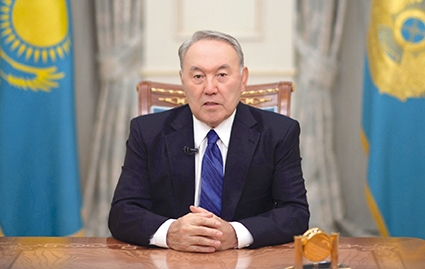Kazakh Leader Goes, But His Legacy Remains
Kazakhstan’s long-ruling president Nursultan Nazarbayaev has resigned and placed as an acting ruler his close associate Kassym-Jomart Tokayev. The event was hailed by many as unexpected and potentially troublesome for the stability of the Central Asian state.
However, there were signs prior to the resignation suggesting that Nazarbayev had been preparing for a power transition for some time. Moreover, the power transition, although a difficult process in itself, is unlikely to cause disturbances as Nazarbayev will still hold a number of important powers.
Nazarbayev, the son of a shepherd, became a rising star in Soviet politics in the 1980s, a period when the Soviet Union’s politics revolved around the ruling class born in the pre-communist revolution era. In a way, Nazarbayaev was a new generation ruler, very similar to what Georgia had under Eduard Shevardnadze in the 1970s-early 1980s.
Nazarbayev's resignation formally triggers a succession process, but preparations were already ongoing for months if not years. In 2017, Nazarbayev devolved some of the presidential powers (primarily related to economic issues) to the country’s parliament. This year, Nazarbayev consulted the country’s Constitutional Council to clarify what powers he would retain should he announce his resignation. In addition, there were multiple rumors and smaller scale shifts and changes which indicated that a presidential succession would take place in the near future.
Although the succession process is not always smooth, in the neighboring Uzbekistan similar happenings were seen in 2016 when Islam Karimov died, with many fearing the government might experience internal troubles. The process turned out to be smooth.
In Kazakhstan too, Nazarbayev will do everything for the process to be effective and political factions and various elites to cooperate. He will continue to serve as Chairman of the National Security Council and head of the ruling Nur Otan party. This means that the former president, through his prestige and some real power, will still be in charge behind the scenes when it comes to major foreign and internal policy issues.
The man who would replace the 78-year-old leader is Tokayev, born into an elite Soviet family and the son of an eminent writer and war hero. Tokayev was a graduate of the prestigious Moscow State Institute of International Relations and in the 1970s became a career diplomat in the Soviet foreign service. Later on, following Kazakhstan’s independence, he worked from 1994 to 1999 and 2003 to 2007 as Nazarbayev’s foreign minister.
The succession process is also interesting in terms of geopolitics of the Central Asian region as Kazakhstan is a major oil and natural gas producing and exporting state. Situated between Russia and China, the country under Nazarbayev has successfully managed to balance between Russia and China, as well as serve as a transit state for US and NATO forces in Afghanistan.
The northern part of Kazakhstan has a sizable, although declining, Russian population which causes concerns for the Kazakh leadership. Sharing a long border with Russia, Kazakhstan has been wary of Russian moves in Georgia and particularly Ukraine. For the Kazakh leadership, the geopolitical reality is that, being far from European states or the US, any confrontation with Russia would be particularly damaging for Kazakhstan.
China might serve as a balancing power and the future Kazakh leadership should play a cautious game between the two big states amid increasing world disorder.
Still, despite this difficult geopolitical situation, the country’s leadership has managed successfully and is likely to continue in the same vein as the new president is a part of the existing ruling elite with probably much the same geopolitical understanding of world affairs.
By Emil Avdaliani
Image source: Akorda press service












